In today's health-conscious era, folate is a crucial nutrient, especially for pregnant women and new mothers. 6S-5-Methyltetrahydrofolate calcium, an active form of folate, is gaining attention.
Let's explore why it is reliable through safety experiments.

I. Comprehensive Safety Experiment Analysis
(1) Acute Toxicity Experiment: Practically Non-toxic
Recent research has comprehensively assessed the acute toxicity of calcium 6S-5-methyltetrahydrofolate. Using mice and rats as models, the test substance was administered orally by gavage. The results were striking: the maximum tolerated dose (MTD) for both male and female rats and mice exceeded 15g/kg, firmly placing this substance in the non-toxic category.
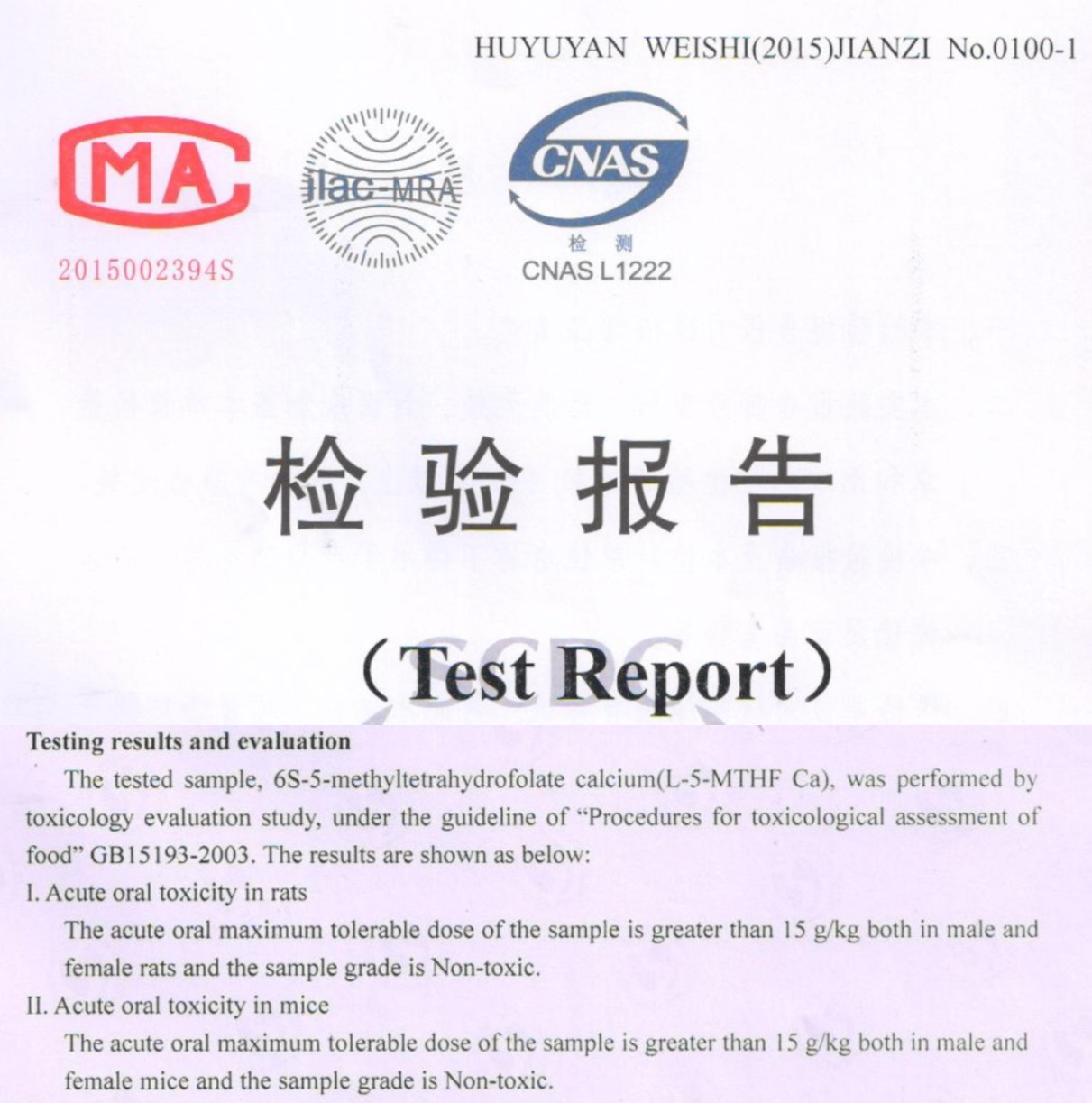
Moreover, the animals exhibited no significant adverse reactions during the experiment. There were no noticeable changes in weight, mental state, or feeding and excretion behavior. Upon dissection, no gross lesions were found in the animals' major organs.
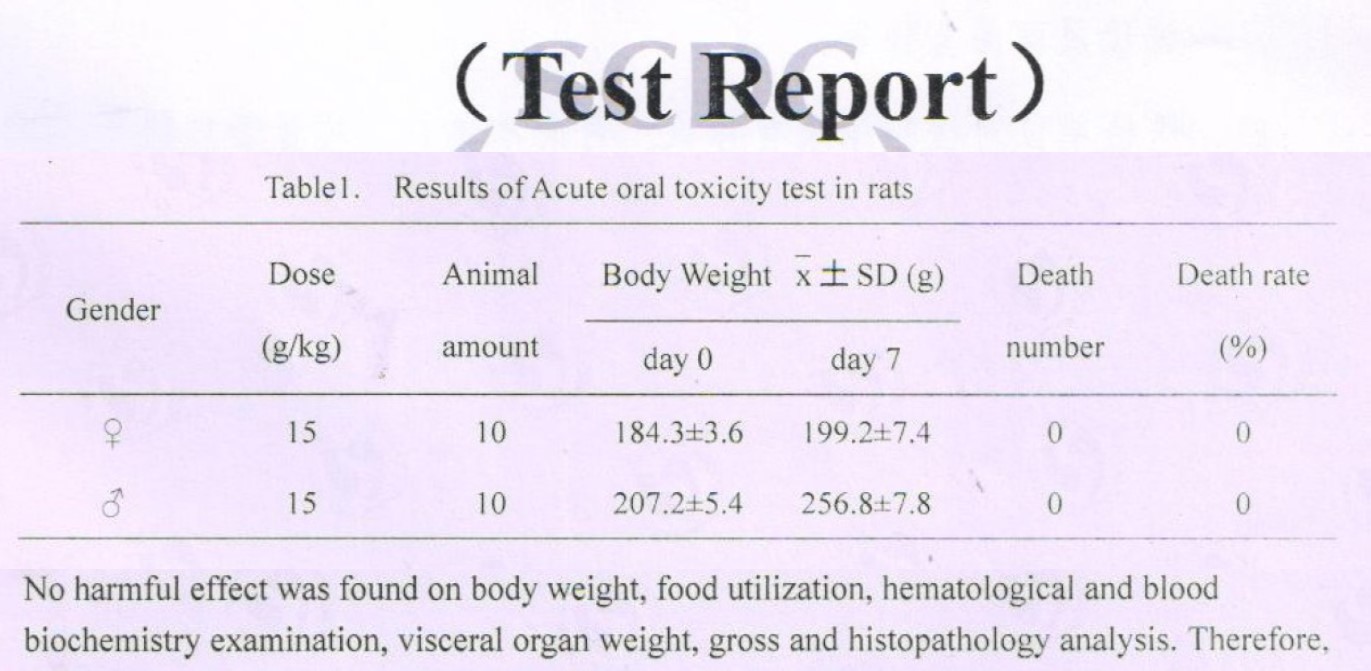
(2) Genotoxicity Experiment: Non-mutagenic
The Ames test, a widely used method for detecting chemical mutagenicity, was performed with four strains: TA97, TA98, TA100, and TA102. The results were clear: with or without S9 activation, the revertant colony counts in all dose groups were below twice that of the solvent control. This indicates that calcium 6S-5-methyltetrahydrofolate is non-mutagenic.
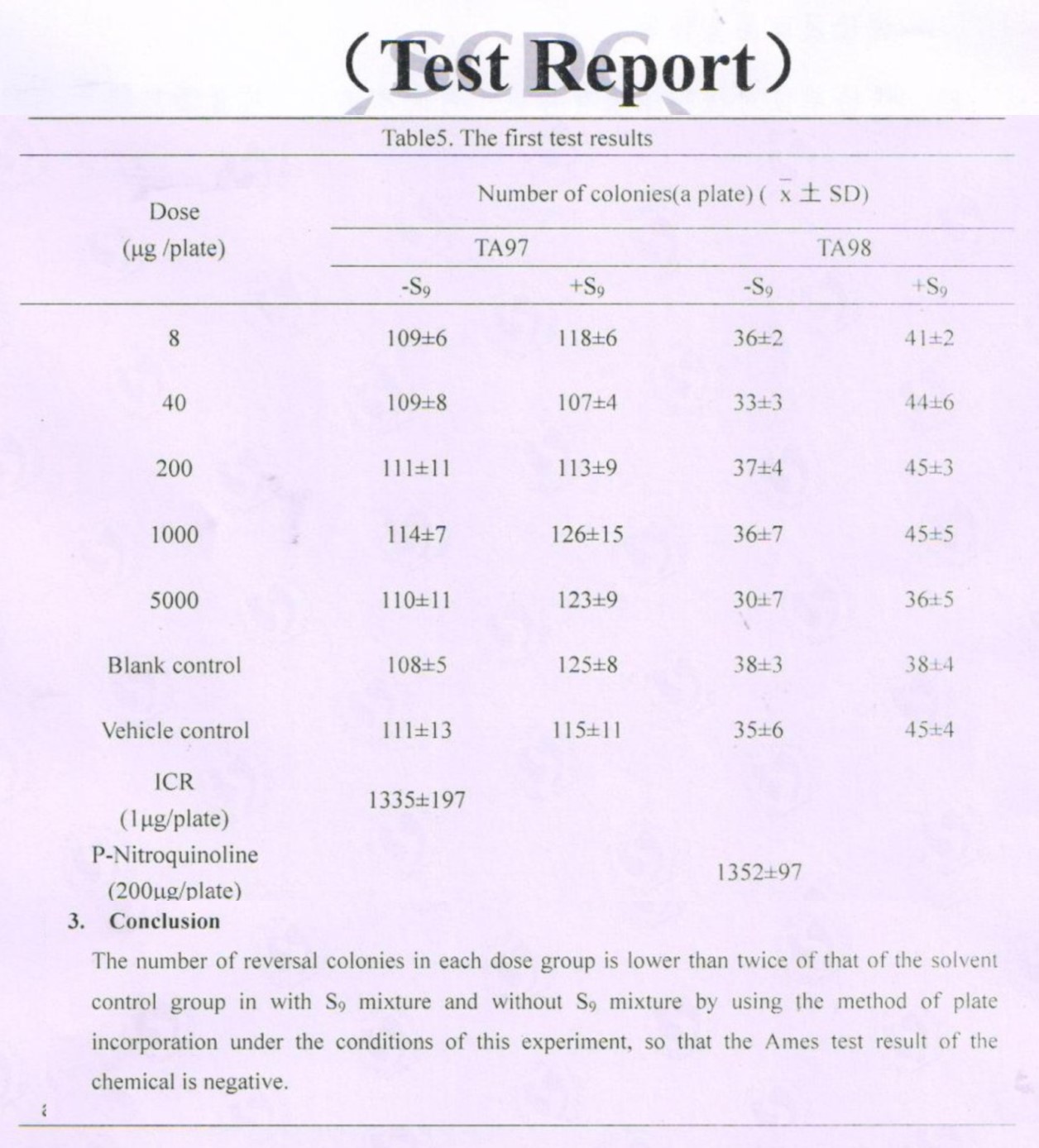
The mouse bone marrow cell micronucleus test, which detects genetic damage caused by chemicals, also yielded important results. Mice were divided into different dose groups and given the test substance by gavage. The data showed no significant difference (P>0.05) in the PCE/NCE ratio and micronucleus rate compared to the negative control. This suggests that calcium 6S-5-methyltetrahydrofolate has no inhibitory effect on mouse bone marrow cells and is non-mutagenic.
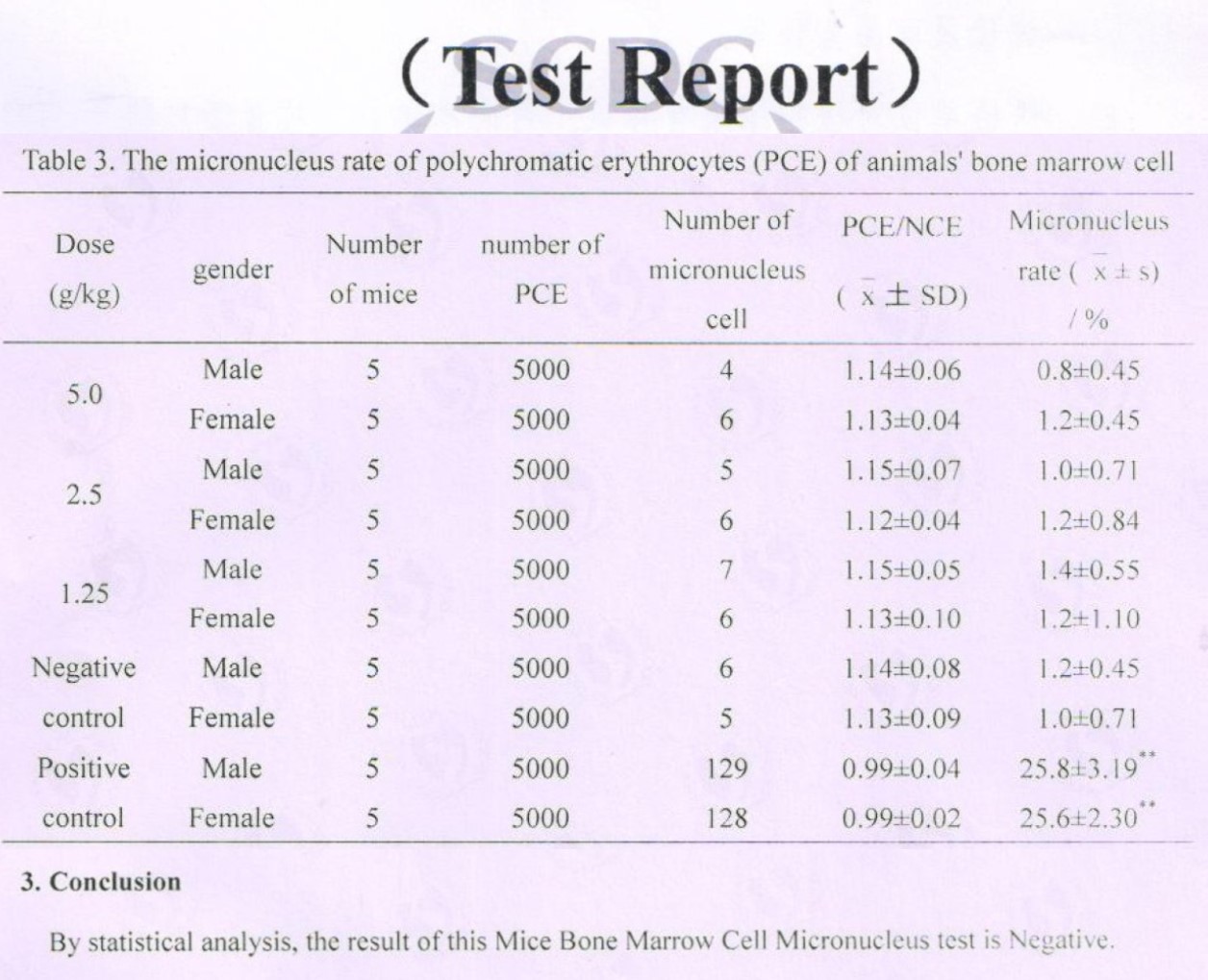
(3) Reproductive Toxicity Experiment: Non-reproductive Toxic
The mouse sperm abnormality test, a key method for evaluating chemical reproductive toxicity, was conducted. Male Kunming mice were divided into different dose groups and given the test substance orally for five days. The findings were reassuring: there was no significant difference (P>0.05) in sperm abnormality rates compared to the solvent control. This indicates that calcium 6S-5-methyltetrahydrofolate does not cause sperm abnormalities and is safe for the reproductive system.
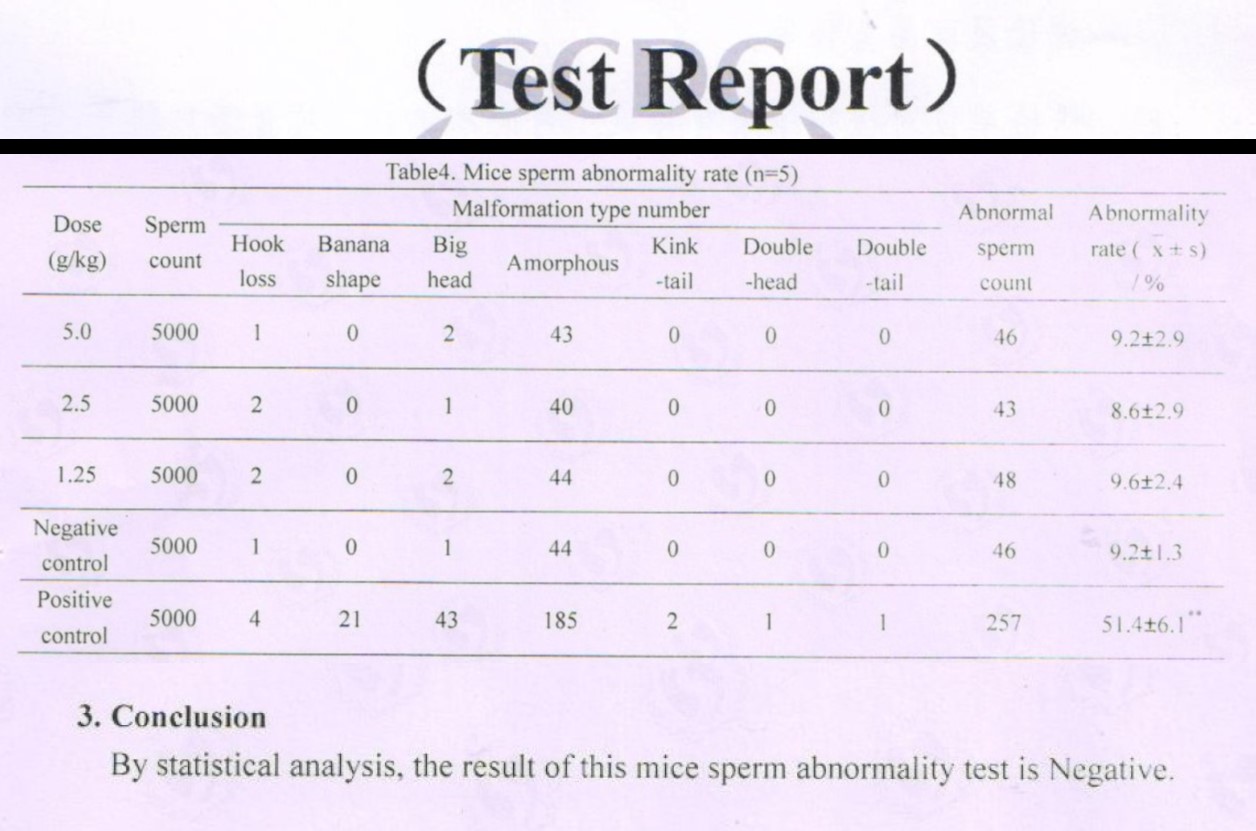
Conclusion
In conclusion, calcium 6S-5-methyltetrahydrofolate demonstrates excellent safety in acute, genotoxic, and reproductive toxicity experiments. This conclusion provides a scientific basis for folate supplementation for pregnant women and new mothers.
Moreover, clinical research confirms that, compared to synthetic folic acid, naturalized folate calcium 6S-5-methyltetrahydrofolate, especially naturalized folate, can rapidly increase serum and red blood cell folate levels. This effectively prevents birth defects and is particularly suitable for the 78.4% of people in China with folate metabolic disorders.
Looking to the future, with further research, calcium 6S-5-methyltetrahydrofolate is expected to leverage its unique health benefits in more fields and make greater contributions to human health.
Reference:
Ma Wenbin, Xue Juan, Tu Hua, Liu Kang, Cheng Yongzhi, Lian Zenglin, et al. Safety Evaluation of Edible Calcium 6S-5-Methyltetrahydrofolate. Frontiers in Medicine, May 2022, Vol. 12, No. 15.

 Español
Español Português
Português  русский
русский  Français
Français  日本語
日本語  Deutsch
Deutsch  tiếng Việt
tiếng Việt  Italiano
Italiano  Nederlands
Nederlands  ภาษาไทย
ภาษาไทย  Polski
Polski  한국어
한국어  Svenska
Svenska  magyar
magyar  Malay
Malay  বাংলা ভাষার
বাংলা ভাষার  Dansk
Dansk  Suomi
Suomi  हिन्दी
हिन्दी  Pilipino
Pilipino  Türkçe
Türkçe  Gaeilge
Gaeilge  العربية
العربية  Indonesia
Indonesia  Norsk
Norsk  تمل
تمل  český
český  ελληνικά
ελληνικά  український
український  Javanese
Javanese  فارسی
فارسی  தமிழ்
தமிழ்  తెలుగు
తెలుగు  नेपाली
नेपाली  Burmese
Burmese  български
български  ລາວ
ລາວ  Latine
Latine  Қазақша
Қазақша  Euskal
Euskal  Azərbaycan
Azərbaycan  Slovenský jazyk
Slovenský jazyk  Македонски
Македонски  Lietuvos
Lietuvos  Eesti Keel
Eesti Keel  Română
Română  Slovenski
Slovenski  मराठी
मराठी  Srpski језик
Srpski језик 








 Online Service
Online Service